Detailed explanation of installing Redis under Linux

Official website download link: https://redis.io/download
1. Select the Download 5.0.0 link under Stable (5.0) to download (stable is Stable version, the default download is the linux version)
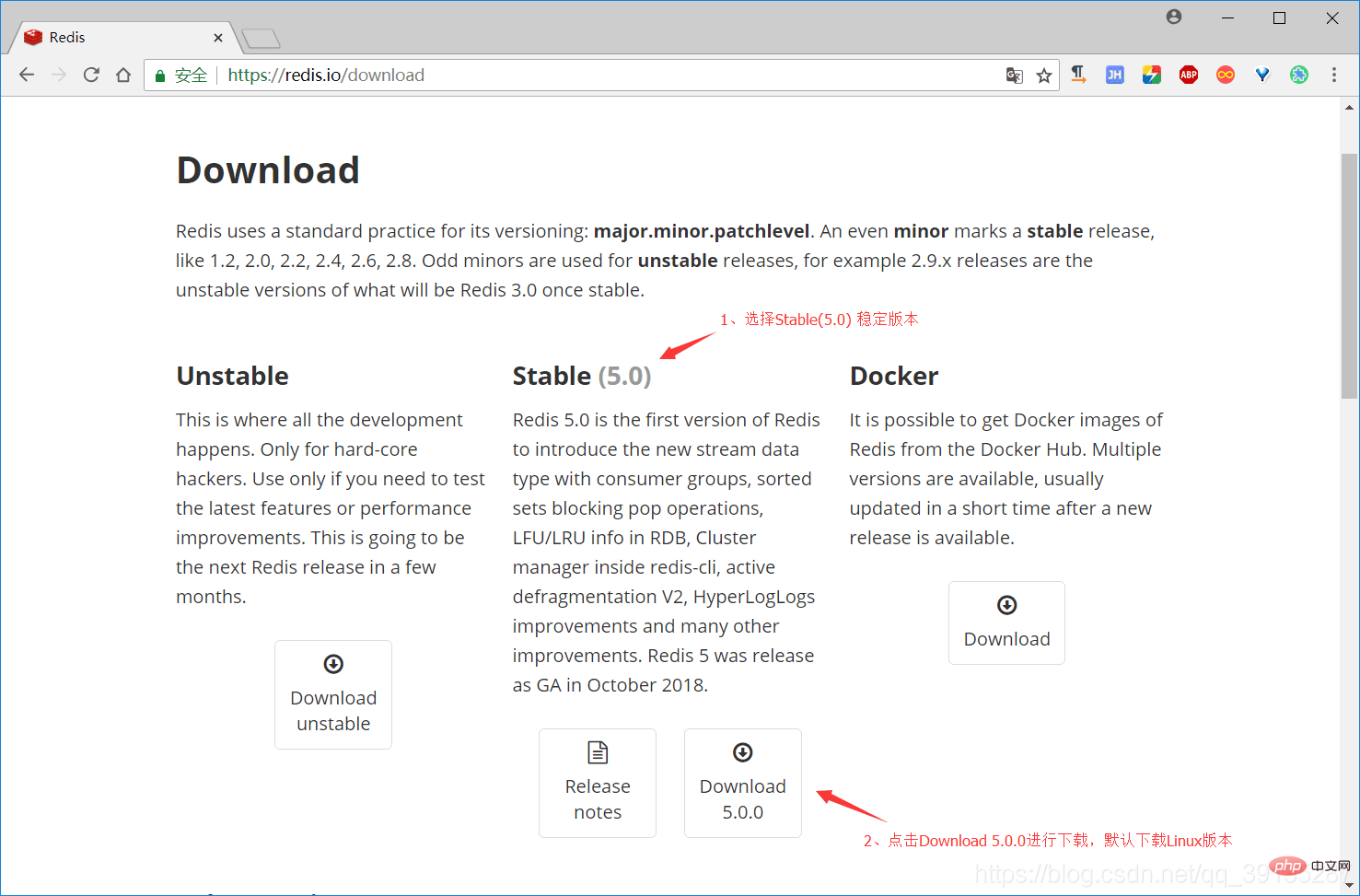
Recommended (free): redis
2 . After the download is completed, open WinSCP and upload the Redis compressed package we downloaded to the /mnt/ file directory of Linux
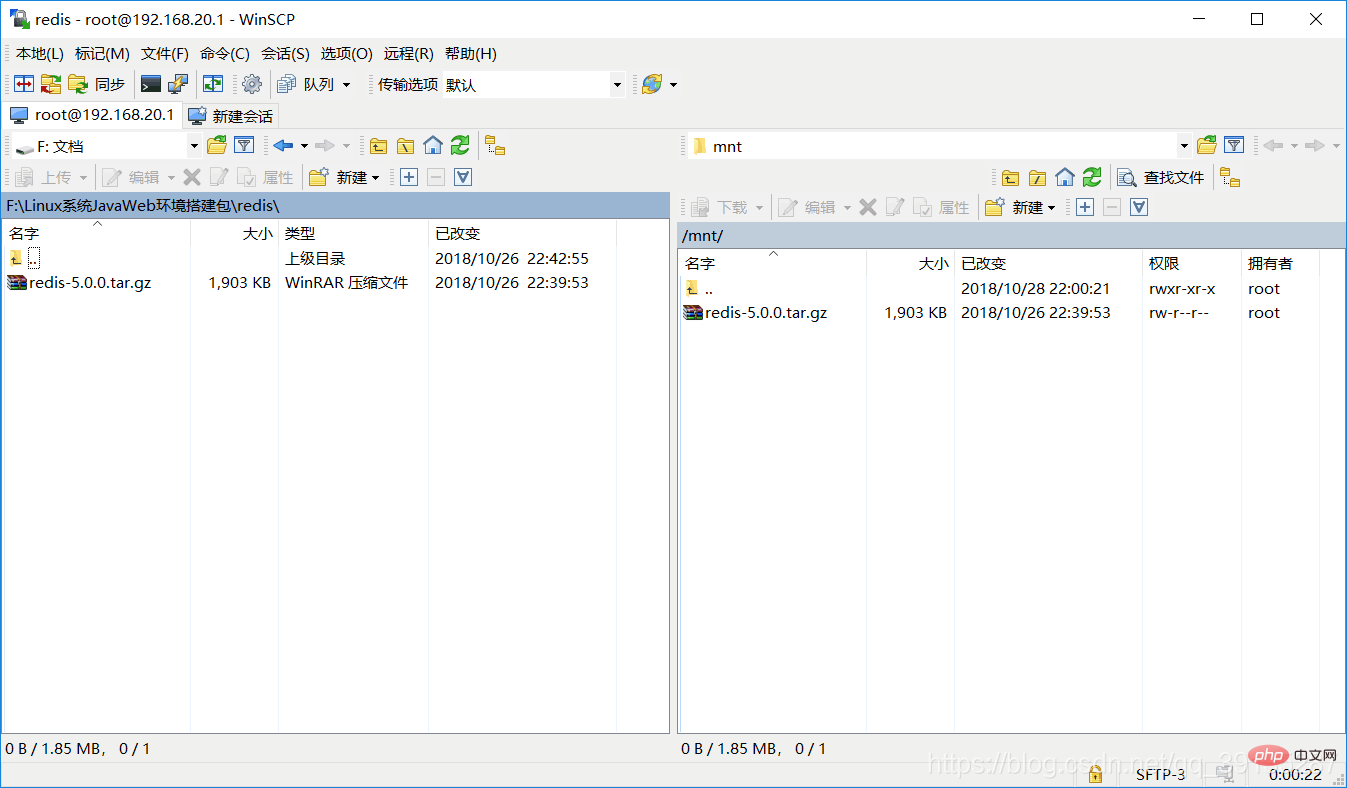
3. Use putty to connect to our Linux server, enter the /mnt/ file directory, decompress redis-5.0.0.tar.gz, and move redis-5.0.0 to the /usr/local/ directory
[root@localhost ~]# cd /mnt/ //进入mnt文件目录 [root@localhost mnt]# tar xzf redis-5.0.0.tar.gz //解压redis [root@localhost mnt]# ls //查看mnt目录 redis-5.0.0 redis-5.0.0.tar.gz [root@localhost mnt]# mv redis-5.0.0 /usr/local/ //把redis-5.0.0移动到/usr/local/ 目录下
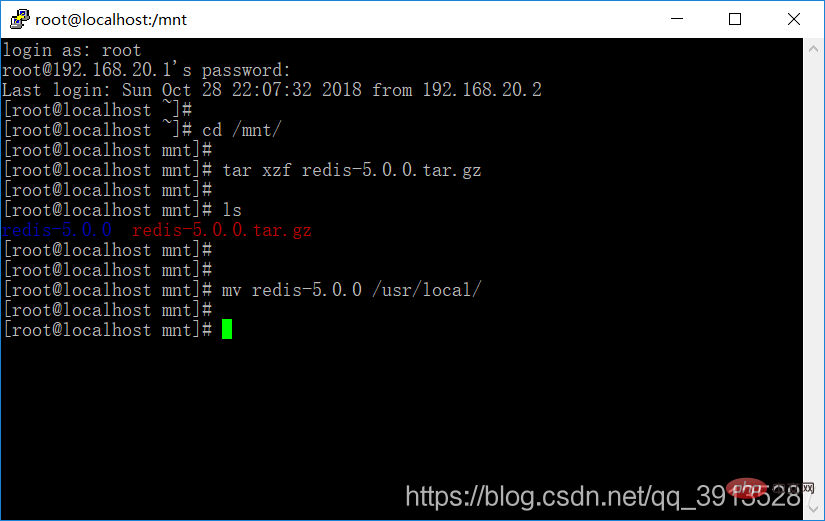
4. Install gcc environment
Since redis is written in C language, its operation requires C environment, so we need to install gcc first . The installation command is as follows:
[root@localhost mnt]# yum install gcc-c++
5. Enter the /usr/local/redis-5.0.0/ directory to compile and install
//进入到/usr/local/redis-5.0.0/ 文件目录下 [root@localhost mnt]# cd /usr/local/redis-5.0.0/ [root@localhost redis-5.0.0]# make //对解压后的文件进行编译 [root@localhost redis-5.0.0]# cd ./src //进入到 redis-5.0.0/src 文件目录下 [root@localhost src]# make install //进行redis安装
(1) Right Compile the decompressed file
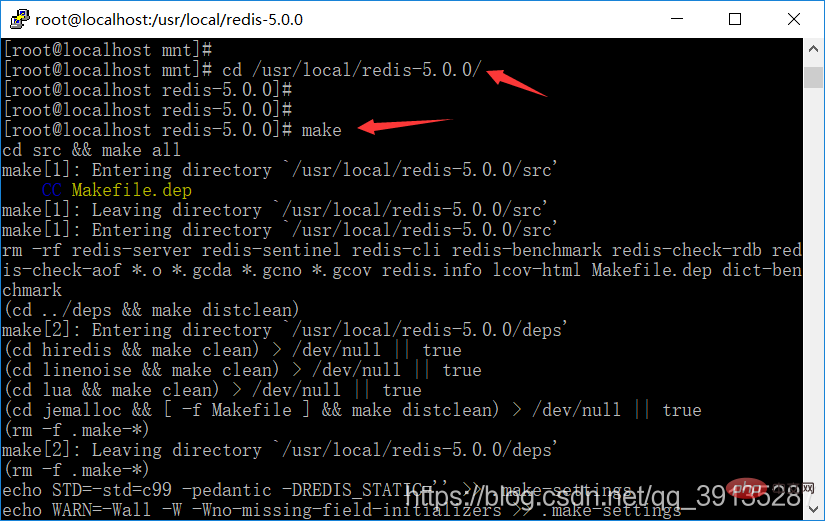
(2) Install redis
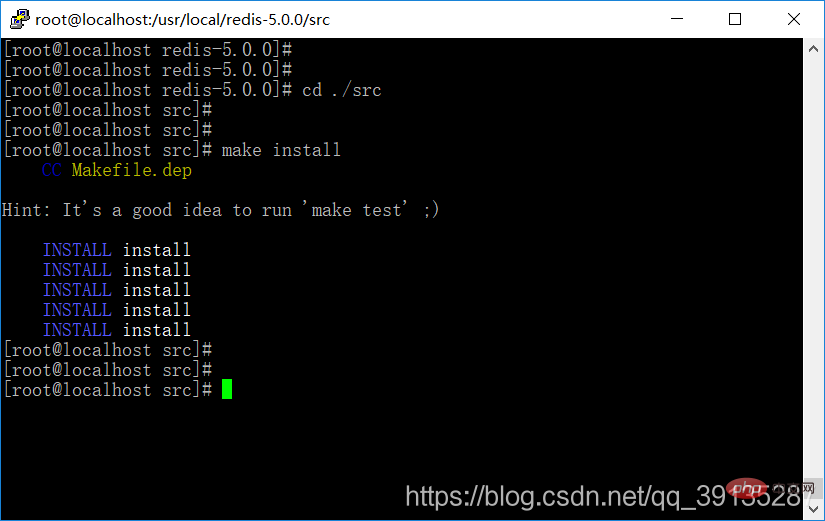
[root@localhost redis-5.0.0]# mkdir bin //创建bin文件夹 [root@localhost redis-5.0.0]# mkdir etc //创建etc文件夹
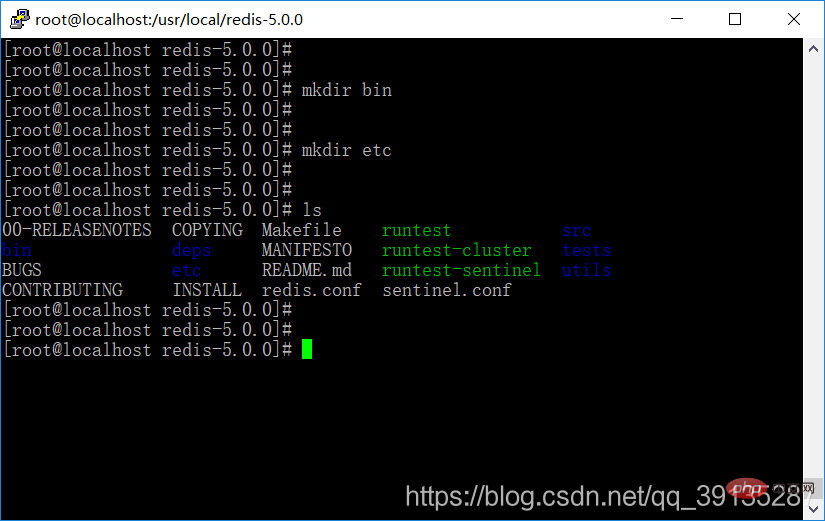
//将redis-5.0.0目录下的 redis.conf 移动到 redis-5.0.0目录下的src文件夹下 [root@localhost redis-5.0.0]# mv redis.conf ./etc/ [root@localhost redis-5.0.0]# cd ./src/ //进入redis-5.0.0目录下的src文件夹下 //将mkreleasehdr.sh、redis-benchmark、redis-check-aof、redis-cli、redis-server 移动到 /usr/local/redis-5.0.0/bin/ 目录下 [root@localhost src]# mv mkreleasehdr.sh redis-benchmark redis-check-aof redis-cli redis-server /usr/local/redis-5.0.0/bin/
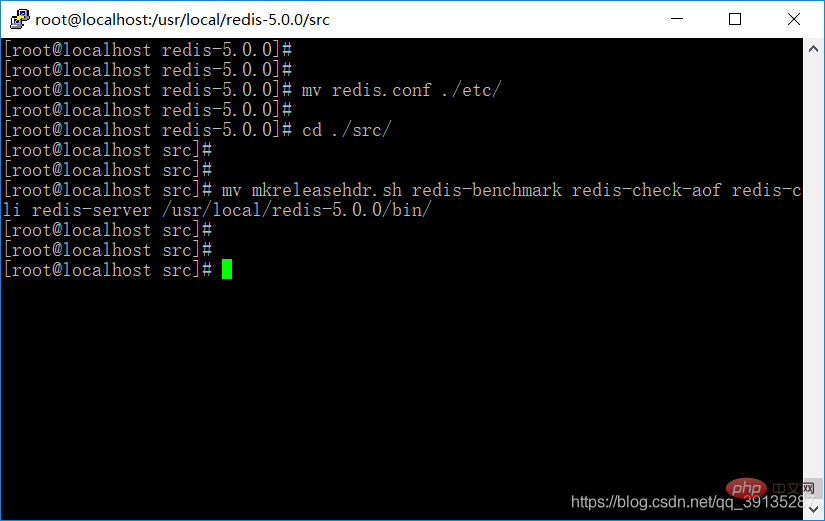
//进入到/usr/local/redis-5.0.0/etc/ 目录下 [root@localhost src]# cd /usr/local/redis-5.0.0/etc/ [root@localhost etc]# ls //查看etc目录 redis.conf
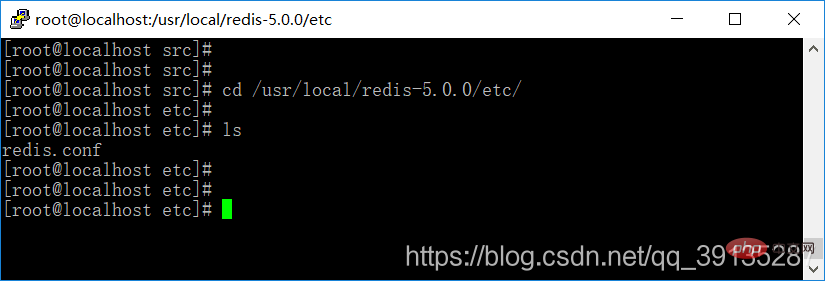
##8 , edit the redis.conf configuration file, and set the background to start the redis service
[root@localhost etc]# vi redis.conf
Change the daemonize attribute in the file to yes (indicating that it needs to run in the background)
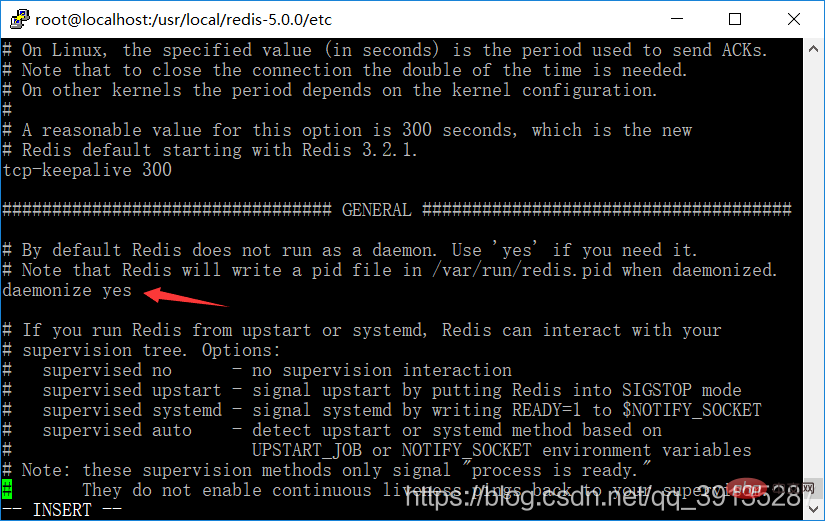
9. Edit the redis.conf configuration file and enable the redis remote access service
(1) Comment out the bind 127.0.0.1 line in the redis.conf configuration file. Here Bind means that only the specified network segment can remotely access this redis. After commenting it out, there will be no such restriction.
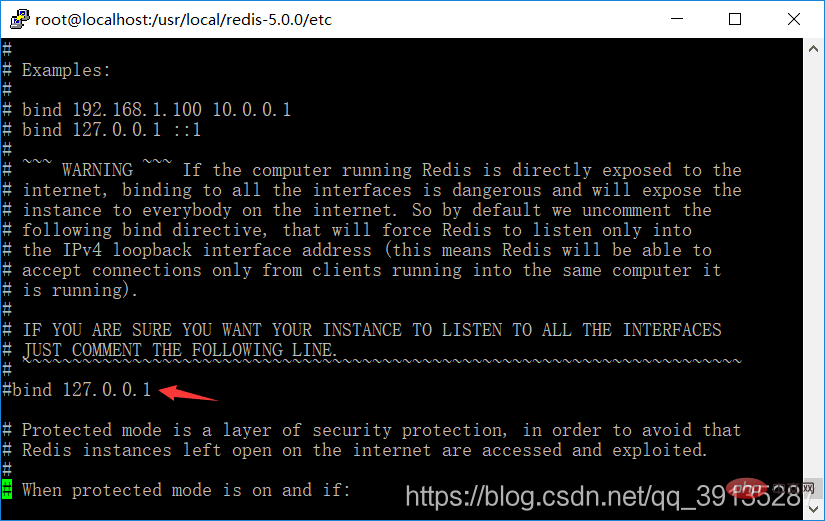
(2) Set the protected-mode in the redis.conf configuration file to no (the default is set to yes, preventing remote access , after redis3.2.3 version)
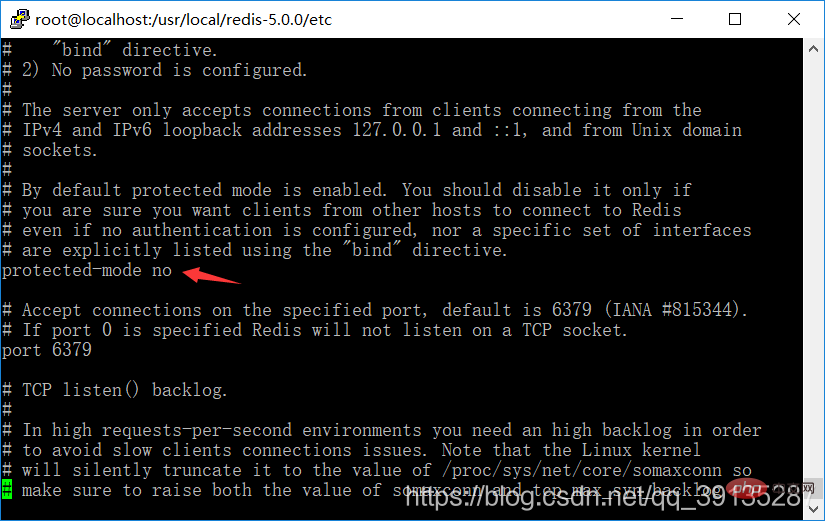
10. Edit the redis.conf configuration file and modify the Redis default password (the default password is empty)
(1) Find this line in the configuration file # requirepass foobared
(2) Delete the previous comment symbol # and change foobared to your own password or start a new line requirepass your own password
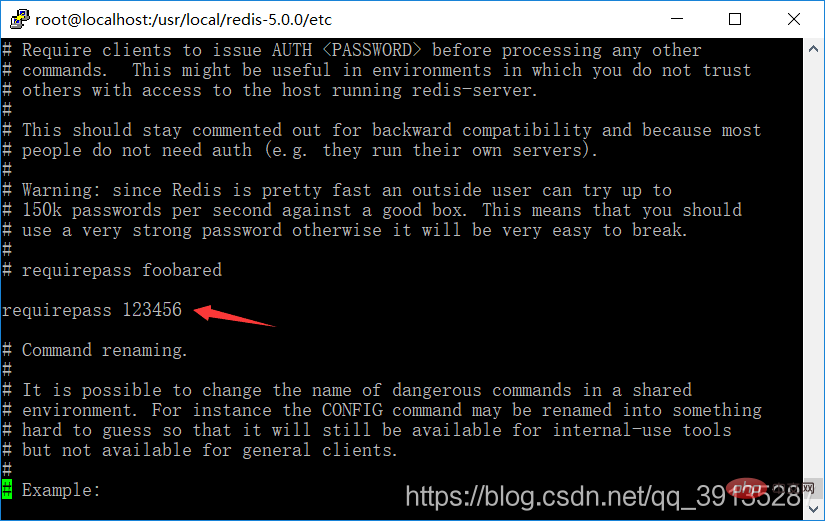
11. Set up Redis to start at boot
[root@localhost etc]# vi /etc/rc.d/rc.local
Add the following code to /etc/rc.d/rc.local:
/usr/local/redis-5.0.0/bin/redis-server /usr/local/redis-5.0.0/etc/redis.conf
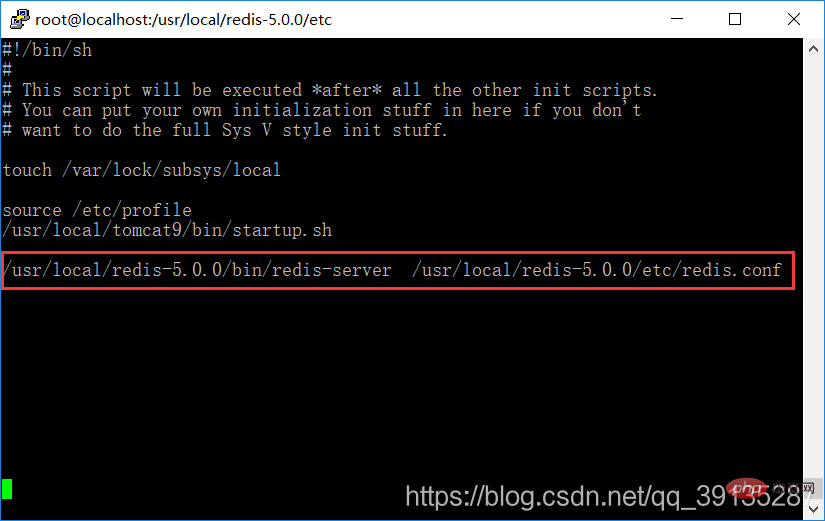
12. Switch to the /usr/local/redis-5.0.0/bin/ directory to execute the redis-server command, use /usr/ local/redis-5.0.0/etc/redis.conf configuration file to start the redis service
//进入到/usr/local/redis-5.0.0/bin/ 目录下 [root@localhost etc]# cd /usr/local/redis-5.0.0/bin/ [root@localhost bin]# ls //查看bin目录 mkreleasehdr.sh redis-benchmark redis-check-aof redis-cli redis-server [root@localhost bin]# ./redis-server /usr/local/redis-5.0.0/etc/redis.conf //启动Redis服务
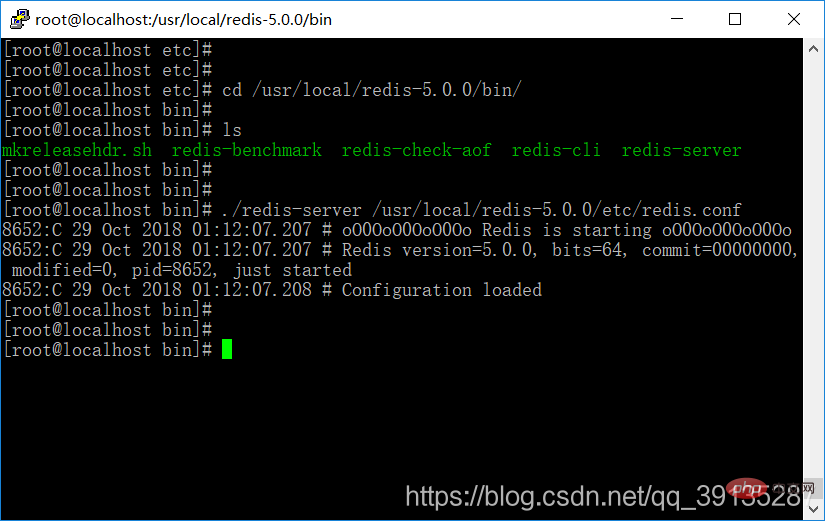
13. Open RedisDesktopManager and test whether the service is enabled And whether it is possible to access Redis remotely
The entire installation process of Redis ends here.
The above is the detailed content of Detailed explanation of installing Redis under Linux. For more information, please follow other related articles on the PHP Chinese website!

Hot AI Tools

Undresser.AI Undress
AI-powered app for creating realistic nude photos

AI Clothes Remover
Online AI tool for removing clothes from photos.

Undress AI Tool
Undress images for free

Clothoff.io
AI clothes remover

AI Hentai Generator
Generate AI Hentai for free.

Hot Article

Hot Tools

Notepad++7.3.1
Easy-to-use and free code editor

SublimeText3 Chinese version
Chinese version, very easy to use

Zend Studio 13.0.1
Powerful PHP integrated development environment

Dreamweaver CS6
Visual web development tools

SublimeText3 Mac version
God-level code editing software (SublimeText3)

Hot Topics
 1378
1378
 52
52
 How do I choose a shard key in Redis Cluster?
Mar 17, 2025 pm 06:55 PM
How do I choose a shard key in Redis Cluster?
Mar 17, 2025 pm 06:55 PM
The article discusses choosing shard keys in Redis Cluster, emphasizing their impact on performance, scalability, and data distribution. Key issues include ensuring even data distribution, aligning with access patterns, and avoiding common mistakes l
 How do I implement authentication and authorization in Redis?
Mar 17, 2025 pm 06:57 PM
How do I implement authentication and authorization in Redis?
Mar 17, 2025 pm 06:57 PM
The article discusses implementing authentication and authorization in Redis, focusing on enabling authentication, using ACLs, and best practices for securing Redis. It also covers managing user permissions and tools to enhance Redis security.
 How do I use Redis for job queues and background processing?
Mar 17, 2025 pm 06:51 PM
How do I use Redis for job queues and background processing?
Mar 17, 2025 pm 06:51 PM
The article discusses using Redis for job queues and background processing, detailing setup, job definition, and execution. It covers best practices like atomic operations and job prioritization, and explains how Redis enhances processing efficiency.
 How do I implement cache invalidation strategies in Redis?
Mar 17, 2025 pm 06:46 PM
How do I implement cache invalidation strategies in Redis?
Mar 17, 2025 pm 06:46 PM
The article discusses strategies for implementing and managing cache invalidation in Redis, including time-based expiration, event-driven methods, and versioning. It also covers best practices for cache expiration and tools for monitoring and automat
 How do I monitor the performance of a Redis Cluster?
Mar 17, 2025 pm 06:56 PM
How do I monitor the performance of a Redis Cluster?
Mar 17, 2025 pm 06:56 PM
Article discusses monitoring Redis Cluster performance and health using tools like Redis CLI, Redis Insight, and third-party solutions like Datadog and Prometheus.
 How do I use Redis for pub/sub messaging?
Mar 17, 2025 pm 06:48 PM
How do I use Redis for pub/sub messaging?
Mar 17, 2025 pm 06:48 PM
The article explains how to use Redis for pub/sub messaging, covering setup, best practices, ensuring message reliability, and monitoring performance.
 How do I use Redis for session management in web applications?
Mar 17, 2025 pm 06:47 PM
How do I use Redis for session management in web applications?
Mar 17, 2025 pm 06:47 PM
The article discusses using Redis for session management in web applications, detailing setup, benefits like scalability and performance, and security measures.
 How do I secure Redis against common vulnerabilities?
Mar 17, 2025 pm 06:57 PM
How do I secure Redis against common vulnerabilities?
Mar 17, 2025 pm 06:57 PM
Article discusses securing Redis against vulnerabilities, focusing on strong passwords, network binding, command disabling, authentication, encryption, updates, and monitoring.




